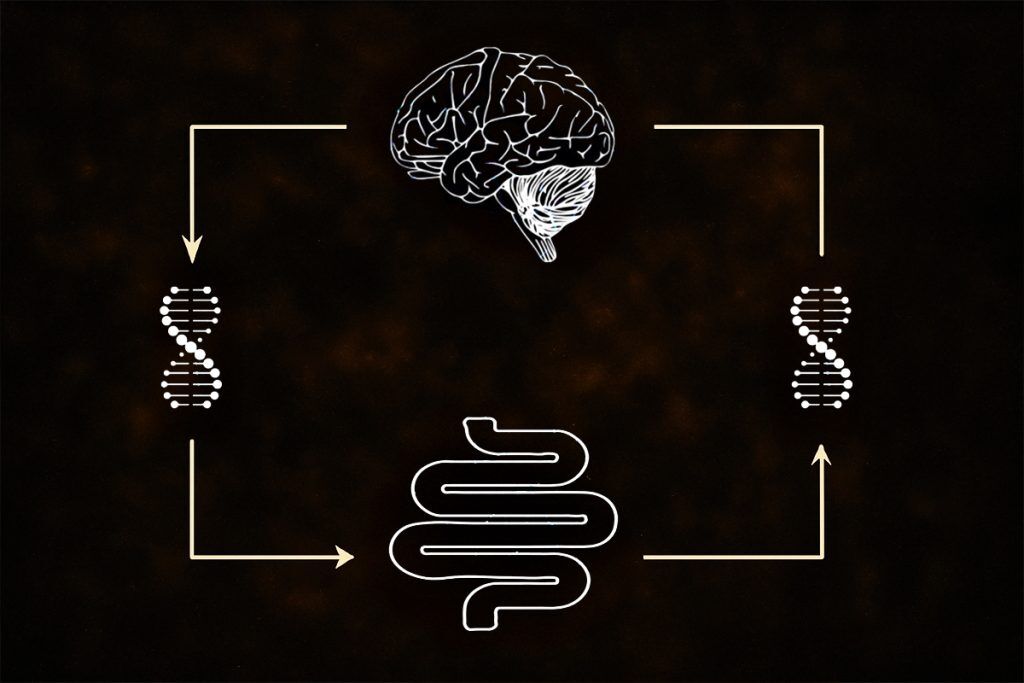
New £4.5m initiative aims to uncover biological mechanisms linking gut health to brain aging, mental health and immune resilience.
A new UK research network has been launched to examine the interplay between the gut, brain and immune system – an increasingly formative triumvirate in the science of aging and chronic disease. The UK Gut-Immunology-Brain Axis Network+, led by Professor Jonathan Swann at the University of Southampton, will unite researchers across disciplines to understand how lifestyle factors such as diet, sleep and stress shape the gut microbiota and, in turn, influence cognitive and emotional health across the lifespan.
Longevity.Technology: Today’s launch of the UK Gut-Immunology-Brain Axis Network+ represents an important step forward in decoding one of the most promising – and complex – frontiers in aging science. The gut-immune-brain axis is emerging as a powerful system that influences inflammation, cognitive function and resilience against chronic disease – core elements that define both lifespan and healthspan. By bringing together multidisciplinary expertise, this network has the potential to move the field beyond correlations and into the realm of causality, identifying mechanisms that could underpin novel, gut-targeted interventions for conditions ranging from dementia to depression. That promise, however, also highlights the need for methodological precision and sustained investment. This is an intricate biological system, and translating early findings into real-world therapies will require careful validation, particularly in diverse human populations; if successful, this research could lay the groundwork for practical, personalized strategies – dietary, microbial and behavioral – that empower people to age better, not just longer.
The initiative, which has received £4.5 million in funding from the Biotechnology and Biological Sciences Research Council (BBSRC), will draw on contributions from scientists at the universities of Southampton, Cambridge and King’s College London and the Quadram Institute. The network aims to tackle key public health challenges including neurodegenerative disease, mental health disorders and metabolic dysfunction – areas increasingly linked to gut microbial health through a variety of emerging mechanisms.
Professor Anne Ferguson-Smith, Executive Chair of BBSRC, commented on the strategic value of the network.
“We now understand that the gut plays a far bigger role in physical, mental and cognitive health than previously thought,” she said. “Understanding of interactions between biological systems is of major importance to our understanding of human health and disease. This research network will help us uncover how the gut microbiome, immune responses and brain function interact – leading to new, evidence-based strategies to improve well-being across all stages of life.”
The gut-brain axis is a bidirectional communication pathway; it links the enteric nervous system with central neural processes, modulates immune responses and is now recognized as a critical determinant in neurodevelopmental and neurodegenerative outcomes. The inclusion of AI and big data analytics in the research design will allow the team to explore this complexity at scale, enabling the identification of predictive biomarkers, causal pathways and therapeutic targets.
The network’s approach is also notable for its attention to modifiable lifestyle factors. Research suggests that dietary interventions such as high-fiber or Mediterranean-style diets may beneficially alter gut microbial composition and activity; these changes have been associated with improvements in mood, cognition and metabolic function. The project aims to move beyond surface-level associations by identifying the biological mediators that underpin such effects, potentially paving the way for new therapies or clinical guidelines.
Professor of Biomolecular Medicine Jonathan Swann from the University of Southampton emphasized the broader scope of the work, noting that the potential implications extend far beyond gut health alone.
“The gut is often referred to as our second brain – and there’s growing evidence to suggest the health of our gut and the microbes that inhabit it can influence our mood and even our cognitive abilities,” he said. “The gut and brain are intimately connected, and we already know that intestinal distress can lead to serious illnesses like anxiety, stress or depression.”
He added: “This new network will bring together expertise from across the UK to help us dive deeper into these diverse connections and help us investigate untapped areas of research such as the link between poor gut health and dementia in older age, the microbial role in infant brain development and even their contribution to autism and ADHD.”
In addition to its scientific ambitions, the initiative has committed to making its findings applicable to public health. This includes developing improved experimental models that better mimic human biology, fostering collaboration across academic, clinical and industry sectors, and promoting non-invasive diagnostic and research tools to facilitate broader participation and translation.
By targeting interconnected biological systems rather than isolated conditions, the network’s multidisciplinary design may offer a more integrated and realistic model of human aging and resilience. It aligns with a broader trend in longevity science – toward personalization, prevention and system-wide optimization.
While much remains to be proven, the Network+ may help to illuminate the subtle microbial signatures that shape how we think, feel and age – and in doing so, bring a new level of sophistication to interventions that aim not only to extend life, but to preserve cognitive and physiological function throughout aging.
Photograph of Jonathan Swann courtesy of the University of Southampton
#research #network #explores #gutbrainimmune #connection



